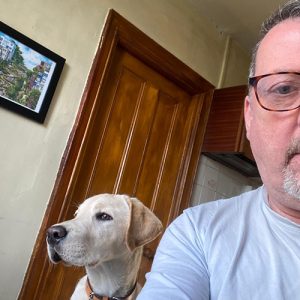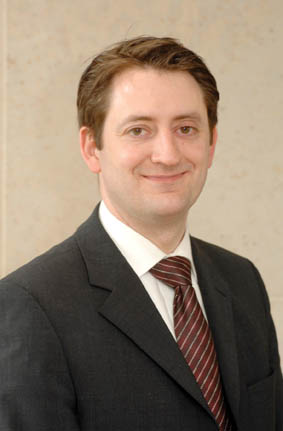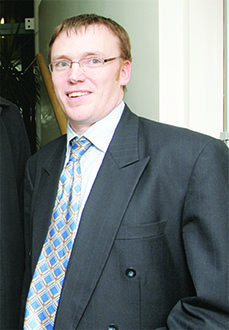Terence Cosgrave , 2025-04-25 07:30:00
The doctors gathered in Killarney for the IMO AGM do not lack passion, writes Terence Cosgrave
Once again this weekend, in Killarney — hometown of George McNeice, where the air smells of rain and redemption, the doctors of Ireland gather. The annual assembly of the Irish Medical Organisation (IMO), an affair as formal as a black tie on a man with a broken collarbone, convene not for merriment (though some will undoubtedly be had), but to stare headlong into the very ailments of Ireland’s ailing health service. A conference of minds, yes — but also a consultation of ghosts. Ghosts of healthcare promises past, present frustrations, and the uneasy spirits of what the tariffed Trumpian future might yet reveal.
Now I will warn you, dear reader: this account may contain sarcasm, hyperbole, and perhaps an ounce or two of uncomfortable truth. But then again, isn’t that what any good diagnosis should do?

Terence Cosgrave
To begin with, it seems that Ireland has a curious case of vanishing hospital beds. For a nation swelling with over 5.4 million souls, we still count just 12,000 acute hospital beds — the same tally as back in the early days of the millennium, when you could still say ‘dot-com’ without irony. The population has grown by nearly 30 per cent since then, but the beds haven’t. And yet the government, ever hopeful, tells us that 3,438 more beds shall appear by 2031, which is rather like promising a drowning man a lifeboat by next week.
Professor Matthew Sadlier, a consultant and speaker of hard truths, will rise at the podium like a prophet without a wilderness and tell the crowd what many already knew but few dared say: the bed shortage is not a glitch — it’s the system. And unless we plan to stack patients like bales of hay, we’re going to need 5,000 beds, not 3,438, and we’re going to need them yesterday.

Professor Matthew Sadlier
There is a cruel irony in Ireland’s current health dilemma: we train doctors the way master craftsmen once trained apprentices — with rigor, sweat and sacrifice. Then we ship them off to Australia, Canada or New Zealand, never to be seen again except in Christmas postcards.
The public-only consultant contract (POCC) has managed to entice around 65 per cent of consultants — a noble achievement in bureaucracy, perhaps. But what of the other 35 per cent? What of the junior doctors who flee before the ink is dry on their diplomas? What of the general practitioners, those stout-hearted souls who operate in the trenches of the system, only to find the trenches growing deeper and the rations fewer?
In all my days observing the noble art of medicine, I have seldom seen a creature more embattled than the Irish GP. If consultants are the architects, GPs are the bricklayers — patching, shoring, and supporting the whole structure even as it buckles beneath them.
This year, the expansion of free GP care was trumpeted as a victory for the people. And indeed, it is a fine idea to let the sick see a doctor without cost — but only if the doctor is actually available. Without expanding capacity or addressing the intolerable work conditions that plague general practice, we have succeeded in turning GPs into overworked clerks. The out-of-hours services, once a proud pillar of community care, are now a cautionary tale. GPs report burnout, poor retention, and younger recruits who take one look at the current model and decide they’d rather sell herbal supplements.

Dr Tadhg Crowley, Chair of the IMO GP Committee
Dr Tadhg Crowley, Chair of the IMO GP Committee, called for full funding of out-of-hours care and the creation of an independent body to assess how much capacity truly exists in general practice. This isn’t just a call for support — it’s a lifeline tossed to a ship that’s already taking on water.
Now I am not averse to innovation. I’ve seen mobile phones, the Internet, and even Artificial Intelligence in my time, and I’ve admired each in turn. But I do balk at the idea that one can swap a doctor for a ‘Physician Associate’ and expect the same results. As Dr Denis McCauley, the new IMO President, so eloquently warned, the doctor-patient relationship — the sacred contract between one human and another — must not be diluted by cost-saving measures dressed up as progress.
If the system believes it can patch over the workforce crisis by replacing doctors with non-doctor roles, it has misunderstood the nature of trust, diagnosis, and the 4 a.m. gut feeling that comes from years of training, not a weekend course in diagnostics.
Let us not forget the emotional currency with which every doctor pays. They carry in their eyes the burden of others’ pain, and in their sleep the things they cannot fix. Burnout is not a badge of honour — it’s a sign of a system that rewards silence, and punishes vulnerability.
One speaker, who had witnessed six patient suicides in five years, spoke of the mental toll with candour and heartbreak. We demand strength from our doctors, but we seldom ask: who is tending to them?
If I may, I shall offer a few recommendations, drawn not from textbooks, but from common sense — that elusive creature we often misplace in times of crisis.
- Double the Training Posts and Retain the Trainees
We must not only train more doctors but give them reasons to stay. That means pay parity, mentorship, reasonable working hours, and above all, respect. - Create a National Workforce Planning Authority
Not a think tank. Not a committee that meets twice a year and publishes glossy reports. But a real, data-driven body that tracks need, matches supply, and adapts swiftly. Doctors are not chess pieces. Treat them as humans with lives, ambitions and breaking points. - Fund General Practice Like It Matters — Because It Does
Fund out-of-hours services fully. Modernize clinics. Provide locum relief and rural incentives. Stop handing out free care without calculating its cost on the provider’s side. - Regulate the Non-Doctor Roles Before Deploying Them
Physician Associates, Nurse Prescribers, and others can support — but not supplant — the role of doctors. Define scopes of practice. Ensure regulatory oversight. And above all, keep the patient informed. - Establish a National Mental Health Strategy for Healthcare Workers
Make it confidential. Make it accessible. And make it clear that seeking help is a strength, not a scandal. - End the Recruitment Freeze and Hire Like the Future Depends on It
Because it does. Staffing levels are not a line on a spreadsheet. They are the difference between life and death in an overcrowded ward on a Sunday night.
The Irish medical system is bruised, no doubt. But it is not broken. Not yet.
The doctors gathered in Killarney do not lack passion. They lack time. They lack colleagues. They lack the space to practice the medicine for which they trained.
They haven’t succeeded in getting that vital message across to a nation that still sees its doctors as costs, not as custodians of the nation’s health.
Let us pray they find more beds, time and space. For their patients, and for themselves.
For all of us. ![]()
